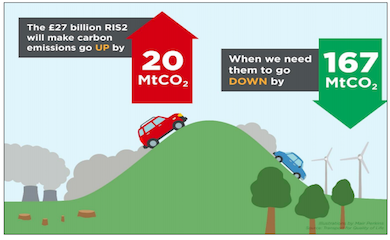Background
A cryptocurrency is a form of digital asset that can be exchanged online for goods and services. The two main defining features of a cryptocurrency are that it does not exist in physical form (like paper money) and it uses decentralised control instead of centralised digital currency or central banking systems. These are achieved using blockchain technology, a distributed ledger that manages and records transactions.[1]
In this article, we take a look at the energy consumption of Bitcoin, the world’s first and largest cryptocurrency, and discuss its potential environmental impact.
Energy Consumption
The Bitcoin blockchain uses a Proof-of-Work (PoW) algorithm to support the distributed network and ensure that ‘double-spending’ cannot occur. The PoW system effectively works through ‘miners’ who compete to validate each Bitcoin transaction using their computational power by solving a complex mathematical problem – whoever solves the problem validates the transaction.[2]
This vast amount of computational power that underpins the cryptocurrencies network clearly requires a significant amount of energy to power. In fact, the Cambridge Bitcoin Electricity Consumption Index (CBECI) estimates that Bitcoin uses approximately 131 terawatt-hours (TWh) annually. This would rank Bitcoin 28th in terms of energy consumption if it were a country.[3]
The comparable energy-consuming countries to Bitcoin are shown in Figure 1 below.
Figure 1: Comparable energy-consuming countries to Bitcoin.
Wasted Energy?
There is no doubt that Bitcoin consumes a significant amount of energy. However, the main topic up for debate is whether this energy is being put to good use or whether Bitcoin has a legitimate claim on any of society’s resources. Indeed, one of the main criticisms of the PoW algorithm is the complex mathematical problems that are solved are completely useless for the world. It is argued that this energy is wasted and could be used on more practical matters instead.
But who is to say what is a waste of energy or not? According to a study from the US Energy Department’s Energy Information Administration (EIA) in 2008, Christmas lights accounted for 6.6 terawatt-hours (TWh) of electricity consumption every year in the US[4].
It should be noted that the PoW algorithm is deliberately energy-intensive because it is necessary that the mathematical problems require time, effort, and commitment to solve. This is vital for achieving strong security and demonstrates that the ‘wasted’ energy does have a purpose.
Harmful Energy Sources?
Approximately 70% of the worlds Bitcoin mining comes from China[5]. According to Dr Larisa Yarovaya at the University of Southampton, who is analysing the carbon footprint of cryptocurrencies[6]: “As of today, most mining pools – groups of miners working in specialised warehouses, with huge investment in hardware and infrastructure – are situated in China. These networks thrive on energy realised from coal-fired power plants, leaving behind an extensive carbon footprint for each unique Bitcoin transaction”.
However, though most of the energy consumption indeed comes from mining pools in China, it may not be appropriate to map China’s generic CO2 footprint to Bitcoin mining. A closer look into where specifically the mining is taking place shows the largest energy consumer to be the Sichuan province, which is characterised by an overbuild of hydroelectric power in the last decade.[7]
Sichuan’s installed hydro capacity is double what its power grid can support, leading to lots of “curtailment”[8] – whereby energy being wasted as it could not be stored or used. As well as significantly reducing the cost of energy, it can also be concluded that lots of the energy produced in this province would be wasted if it was not used to mine Bitcoin.
Conclusions
There is no doubt that the significant amount of energy that Bitcoin consumes will only increase as its adoption grows. Although claims that this energy is going to waste and is coming from harmful sources may not be entirely as simple as first thought, there is no doubt that increasing the share of clean energy it uses will be vital to ensure it does not have a severe detrimental impact on the environment in the future.
About Pager Power
Pager Power undertakes technical assessments for developers of renewable energy projects and tall buildings. For more information about what we do, please get in touch.
References
[1]Cambridge Centre for Alternative Finance, 2021. Cambridge Bitcoin Electricity Consumption Index (CBECI). [online] Cbeci.org. Available at: <https://cbeci.org/cbeci/comparisons> [Accessed 15 March 2021].
[2]Murray, J., 2021. How much energy is used by putting up Christmas lights in the home?. [online] Nsenergybusiness.com. Available at: <https://www.nsenergybusiness.com/features/christmas-lights-energy/> [Accessed 15 March 2021].
[3]Cambridge Centre for Alternative Finance, 2021. Cambridge Bitcoin Electricity Consumption Index (CBECI). [online] Available at: <https://cbeci.org/mining_map> [Accessed 15 March 2021].
[4]University of Southampton, 2021. Calculating the climate cost. [online] Southampton.ac.uk. Available at: <https://www.southampton.ac.uk/news/2020/12/calculating-climate-cost.page> [Accessed 15 March 2021].
[5]Carter, N., 2021. The Last Word on Bitcoin’s Energy Consumption. [online] CoinDesk. Available at: <https://www.coindesk.com/the-last-word-on-bitcoins-energy-consumption> [Accessed 15 March 2021].
[6]University of Southampton, 2021. Calculating the climate cost. [online] Southampton.ac.uk. Available at: <https://www.southampton.ac.uk/news/2020/12/calculating-climate-cost.page> [Accessed 15 March 2021].
[7]Reuters Staff, 2020. China’s giant Wudongde hydro project begins power generation. [online] Reuters. Available at: <https://www.reuters.com/article/us-china-hydropower-idUSKBN24107Z> [Accessed 16 March 2021].
[8]Carter, N., 2021. The Last Word on Bitcoin’s Energy Consumption. [online] CoinDesk. Available at: <https://www.coindesk.com/the-last-word-on-bitcoins-energy-consumption> [Accessed 15 March 2021]




